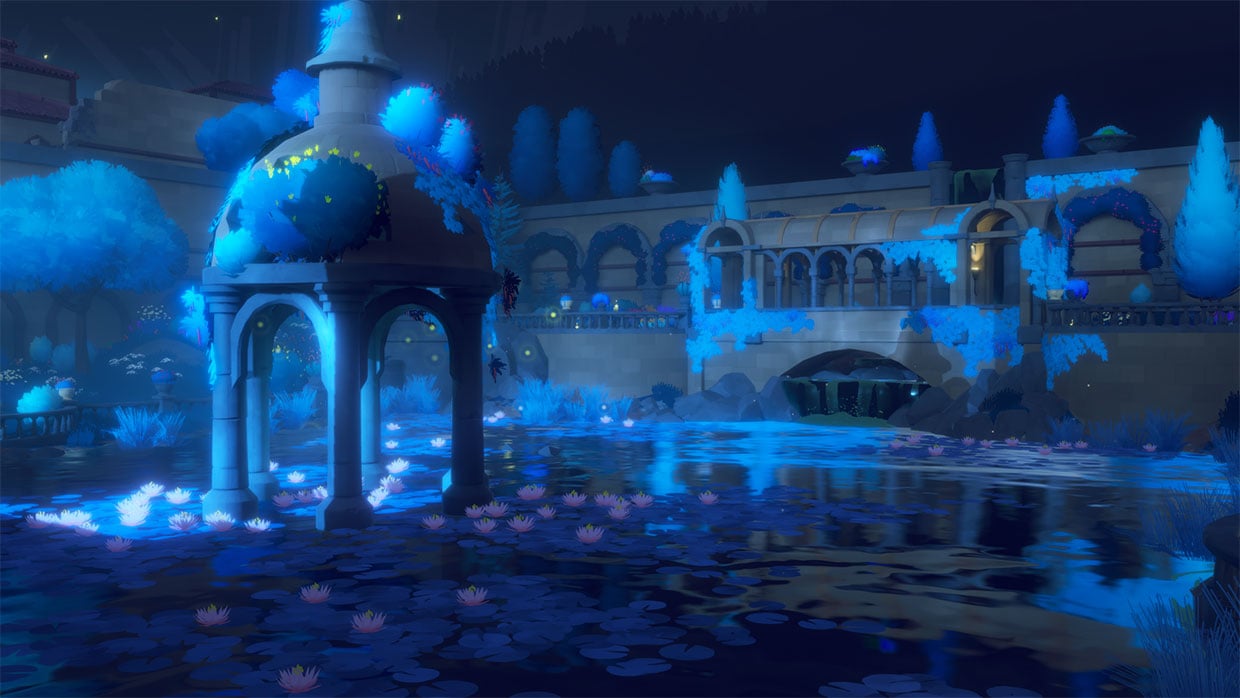

But I tried not to rely on them too much. But eventually, I’d realize that I was just looking at the miniature from the wrong angle, or I wasn’t being creative enough with the items.Īnd for those times when I was truly stuck, the PS5’s Activity Cards came in handy: The developer included almost all of the puzzle solutions in the console’s built-in guides feature. I had moments where I was sure I’d exhausted every possible solution. Maquette often made me feel like my brain was breaking in half while trying to come up with an answer - but when I did, it felt amazing.

But the more difficult puzzles incorporate multiple items and multiple ways to transform those items. The solutions start off easy enough, like using a golden key to unlock a door, and then later using a giant version of the same key as a bridge to head into the next area. You have to repeat this process over and over to solve many of Maquette’s puzzles. I have no idea how Graceful Decay pulled this off, but it felt like magic whenever I shrunk or enlarged something this way. If you take a regular-sized object and place it in the miniature, a giant version of that object comes crashing down in your world. If you put an object like a box or staircase in one corner of your world and go to the corresponding spot in the replica, you’ll see that the object is also there (albeit at a much smaller size) and you can pick it up. And what happens in one platform is reflected in the other. In theory, these nested worlds stretch to infinity, but Maquette thankfully limits how far you can go in either direction. If you venture outside your normal-sized platform, you’ll just find a bigger version of the same buildings and trees. Here’s the twist: They’re actually the same world. You start on a cross-shaped platform with a giant red dome at its center, and inside is a miniature version of your cross-shaped world. One of the most fascinating aspects of Maquette is that you’re not moving through a linear space. If you’re in the market for a well-designed puzzle game that tugs at the heartstrings, it’s well worth it.Image Credit: Giancarlo Valdes/GamesBeat Now you’re thinking with recursion
#The maquette game for free
PlayStation Plus members get it for free as part of their subscription, others will have to pay $19.99. Maquette is out today for PC, PS4, and PS5. Both the writing and the voice acting are top-notch and the subject matter blends with the gameplay way better than you’d expect. You don’t often see games tackling real, human stories about ‘mundane’ stuff like relationships, so it was refreshing to see Maquette tackle the subject. Sometimes the controls and the mechanics were a bit finicky, but with some patience you’ll probably get through the whole thing without much frustration. The puzzle design in Maquette is top-notch and I had a lot of fun messing around to come up with a solution. The concept starts off pretty straightforward, but as you get deeper into the game you’ll have to wrack your brain on a bunch of complicated and beautifully crafted challenges. You pick up a tiny little cube outside the maquette and you place it inside the miniature, where it forms a huge box that you can then use to traverse a gap. It’s a bit hard to describe, but you basically have to manipulate objects in different sized copies of the world you’re in.Īt the start of the game you encounter a maquette that’s an exact replica of the bigger environment you walk around in. The story unfolds as you complete puzzles that are built around the game’s recursive setup. It’s voice-acted by Bryce Dallas Howard ( The Mandalorian) and her real-life husband Seth Gabel ( Nip/Tuck), and it takes the player on a journey from the very start of the fling to its depressing end. The game tells the story of a relationship that (spoiler, sorry) eventually goes stale. Its developers describe Maquette as a ‘first-person recursive puzzle game’, which is technically correct but there’s a lot more to it than that. Playing Maquette, however, made me a little teary eyed.


 0 kommentar(er)
0 kommentar(er)
